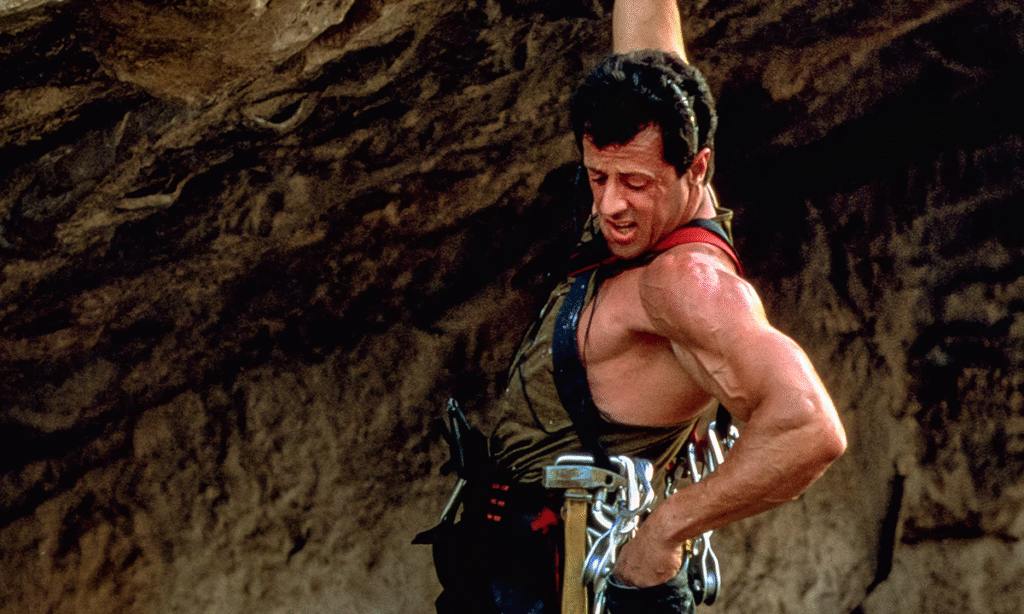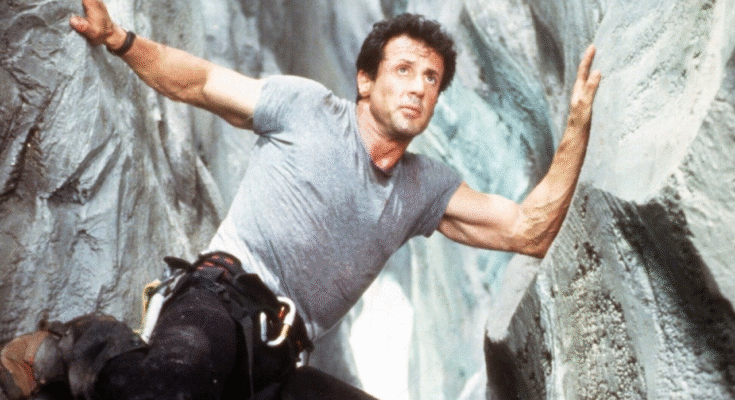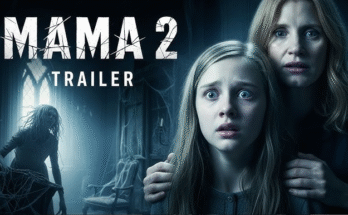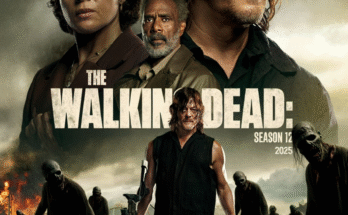Before CGI and green screens ruled the mountains, Cliffhanger put real danger back on the edge of the frame. Relying on raw stunt work, physical tension, and Sylvester Stallone’s sheer intensity, it stands as one of the most breathtaking action thrillers of the 1990s — a film that turned the frozen peaks of Colorado into both cathedral and battlefield.

The story wastes no time. Gabe Walker (Stallone), a seasoned mountain rescuer, carries the weight of an unforgivable mistake — a tragic fall that claimed a young climber’s life. That opening sequence remains one of the most nerve-shredding in film history: a single glove slipping, a silent scream swallowed by the abyss, and Stallone’s haunted eyes realizing that no amount of strength can fight gravity. It’s not just action; it’s trauma immortalized.
Months later, Gabe returns to the mountains he swore he’d never climb again, drawn back by a distress call. But the rescue is a ruse — a trap set by a team of mercenaries led by the icy, intellectual psychopath Eric Qualen (John Lithgow). When their midair heist goes wrong, millions in stolen cash scatter across the Rockies. Now Gabe is forced to become both rescuer and avenger — hunted through ice, snow, and vertical stone by men with guns and greed as relentless as the wind.

Director Renny Harlin (Die Hard 2) stages the film with operatic grandeur. Every frame feels cold to the touch — jagged cliffs looming like teeth, snowfields glowing under pale sunlight, and helicopters slicing through cloud banks. The stunts — many performed by Stallone himself — defy belief. There are no safety nets, no digital illusions, just real actors clinging to real cliffs thousands of feet above the ground. It’s cinema at its most primal.
Stallone gives one of his most underrated performances. Beneath the muscle and grit is a man broken by guilt, climbing not for victory but for penance. His silences speak louder than his one-liners, though he still delivers them with perfect grit: “Remember, hang on — or die trying.”
John Lithgow, meanwhile, relishes his role as Qualen — a villain of pure intellect and venom. His British accent cuts like a knife, his calm demeanor more chilling than any scream. Watching him spar verbally with Stallone is as thrilling as watching them fight physically — a clash of control versus chaos.

The supporting cast adds weight and texture: Michael Rooker as Gabe’s betrayed friend Hal, Janine Turner as the moral compass lost in the storm, and Rex Linn as the jittery techie with too much ambition and not enough fear. Each character is drawn into the mountain’s merciless rhythm — climb, slip, survive.
The cinematography by Alex Thomson turns the Rockies into myth. The camera dances with danger, swooping across ravines and spinning through free falls, capturing vertigo as emotion. Trevor Jones’ orchestral score swells with heroic melancholy — brass and strings echoing like distant thunder, elevating the action into pure adventure opera.
What makes Cliffhanger endure isn’t just the spectacle — it’s the sincerity. Every stunt is real, every bruise earned. It’s a film about human endurance, about facing both nature’s wrath and one’s own failures. The mountains aren’t the enemy here — they’re the truth, stripping away everything false until only willpower remains.
The finale, a showdown on a helicopter dangling over a cliff, is pure cinematic catharsis — metal twisting, fire blooming against snow, and Stallone clinging to survival with bleeding hands and unbroken resolve. When the dust settles and the camera pulls back to reveal the endless peaks, the silence feels like victory.
💬 Film Verdict:
⭐ 4.5/5 (9.0/10) — A pulse-pounding classic of ’90s action — raw, relentless, and real. “Cliffhanger” climbs higher than most modern blockbusters dare to look, turning survival into poetry and gravity into destiny. 🏔️🔥




